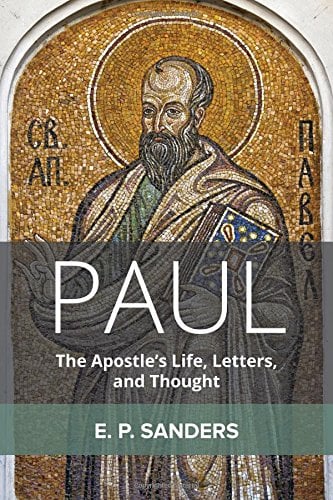p. 147– In Sanders view, only 7 of Paul’s original letters have survived, mainly because they were copied so many times. They probably survived because an individual who housed a church kept it and perhaps had it recopied. He thinks that the reference of the seven letters to seven churches in Rev. 2-3 reflects the influence of the publication of Paul’s letters, because apocalypses don’t normally include letters. Further, Ignatius which knows Paul’s letters also writes seven letters to seven churches following Paul’s example.
p. 148 James seems to have misunderstood Paul’s views as Paul frequently affirms both faith and good works. 1 Clement bears witness to a knowledge of 1 Cor. and Philippians.
p. 149 he argues that since we have no references to Paul’s letters in the Gospels and Acts they must have been written before the publication of the Pauline corpus. [This is an argument from silence. Luke is focusing on the planting of churches across the region, not on later discipleship activities like writing letters].
It is notable how many times Sanders appeals to the dated and in some ways eccentric work of John Knox on the Pauline corpus, its order, dates etc. But then Knox was one of Sander’s teachers.
p. 150– He thinks followers or close disciples of Paul write Colossians, Ephesians 2 Thessalonians later.
p. 151— His reason for rejection Colossians and Ephesians is that they quote earlier Pauline letters. [It is true that Ephesians draws on Colossians, but Ephesians is a circular letter sent to some of the same audience as Colossians. As for Colossians, most commentators today think Paul wrote it. Note that absolutely nothing is said about rhetorical considerations in this assessment.]
p. 154— He says there is no reason to think of Paul keeping a copy of his letters [see D. Trobisch against this, and it was a regular practice], nor is it likely he later composed documents where he cherry picked phrases from earlier letters of his, because he was a religious genius and his mind was always active when he was composing the letters [this is a bit ironic since Sanders is also seen as a brilliant scholar and yet in this very volume he keeps quoting from and noting his earlier work].
p. 155—Paul dictated his letters himself, he did not leave it to others to write them, he did not substantially revise them, and they reveal his mind. The reason not to see the deutero-Paulines as Pauline is they are rather plebian, they do not have the fire or drive or insight of the Hauptbriefe. [This makes no sense of e.g. either Colossians or for that matter 2 Timothy which is fill of passion and interesting material]
pp. 156-57 he likes the suggestion that the Onesimus mentioned by Ignatius as a bishop is the same Onesimus as mentioned in Philemon, and that he had a hand in the collecting of the Pauline letters (and perhaps the composition of Colossians and Ephesians?) This view he derives from his teacher John Knox.
P. 157—Paul was converted in the early 30s, wrote 1 Thess. in the early 40s, and the rest between the late 40s to mid 50s.
p. 158— Nothing in Acts gives as clue as to when Paul founded the churches in Galatia [i.e. he simply dismisses the evidence of Acts]. He adds its unreasonable to think Onesimus fled to Rome and so Philemon was probably written from somewhere like Ephesus.













